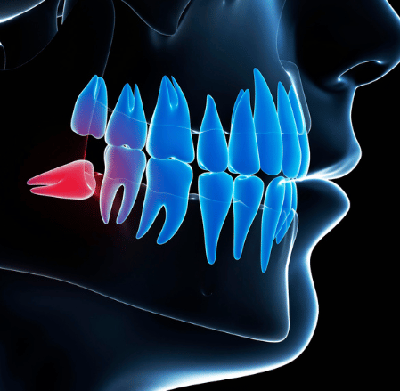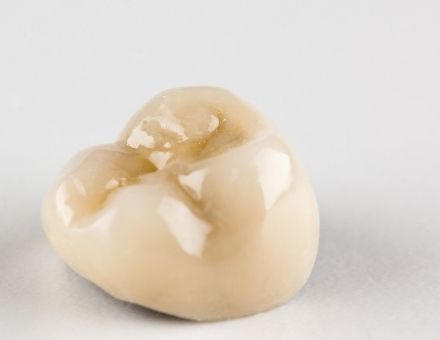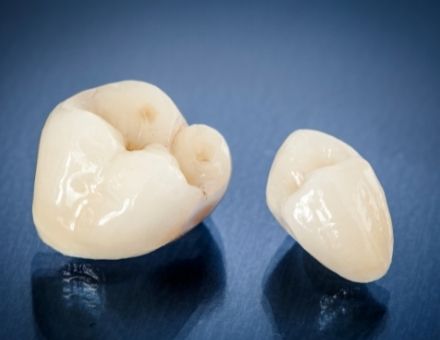How Can I Find an Emergency Dentist Near Me for Wisdom Teeth Removal?
I’ve been looking for an emergency dentist near me to manage a wisdom tooth that aches occasionally. I’m 32 and have all my wisdom teeth. Only one began to ache early last year. I had a wisdom teeth evaluation from an oral surgeon who says that three wisdom teeth are impacted, although I don’t have symptoms. The roots of one tooth are near a nerve, but the surgeon said nerve damage risk is low. He may leave the root. I’m not ready to have the teeth removed, though. All the dentists I called said they don’t do emergency wisdom teeth extraction. Can I wait until the tooth is really bothering me? I’m anxious and don’t want to sit through tooth extractions before I need them. I just need to find a dentist who will pull the wisdom teeth when I’m ready. – Thanks. Xander from IL
Xander,
As you age, wisdom teeth roots thicken, and your jawbone around them hardens. The longer you wait, the more challenging it is to remove wisdom teeth. The risks of complications or nerve damage increase as you age.
How Can You Find an Emergency Dentist Near You for Wisdom Teeth Removal?
You probably won’t find an emergency dentist near you willing to assume the risks of impacted wisdom teeth removal. Most general dentists will not remove impacted wisdom teeth. Also, a dentist would need to complete an evaluation of your wisdom teeth and review your digital X-rays to see the location of tooth roots near the nerves. The dentist would likely refer you to an oral surgeon.
What Can an Emergency Dentist Near Me Help With?
An emergency dentist near you can help if you have a toothache infection, trauma to a tooth, a broken tooth, or a lost dental restoration, such as a crown or filling. Scheduling an emergency visit with a dentist can prevent an infection from getting worse or save a traumatized tooth before it’s too late.
Removing Impacted Wisdom Teeth

An oral surgeon can anticipate the best way to remove your impacted wisdom teeth. Sometimes, a surgeon may dissect a tooth in pieces to make removal easier. We advise you to allow a surgeon to remove your wisdom teeth before they become problematic.
When a wisdom tooth’s root is near a nerve, a surgeon may wait until performing surgery to determine whether to leave the root or a root tip. Usually, leaving a small root tip in the socket does not present problems later.
Regarding your anxiety, a skilled oral surgeon will numb the surgical sites and remove all four wisdom teeth in minutes. Additionally, dentists and oral surgeons explain sedation options to relax you during dental procedures.
Dr. Thaddeus Michalski, a Rocky Hill, Connecticut dentist, sponsors this post.
My Tooth Crown Fell Off Four Times
Although our family has had the same dentist for over 15 years, I have given up on my dentist because my crown won’t stay on. I first received a crown for my lower left second molar after a root canal in 2009. My dentist replaced the crown in March 2022. Over the past year, the crown has come off four times. The fourth time it came off was two weeks ago, and I decided not to return to my dentist. I knew I couldn’t leave my tooth bare, so I found an emergency dentist who re-cemented it. She wants me to return to her so she can determine why the crown repeatedly falls off. I’m not sure what to ask or what to do. This ordeal is making me nervous. I wish it would go away, but I know better. I would like to know why the crown keeps coming off. – Thanks. Dakota from NJ
Dakota,
Dr. Michalski would need to examine your crown and tooth to determine why the crown keeps falling off.
Why Does a Dental Crown Fall Off?

When a tooth has a root canal and little structure remains to support a crown, a dentist needs a specific technique to ensure the crown is secure. Although a dentist who understands how to resolve the issue might have a slightly different approach, the process generally includes the following:
- Place and cement a semi-flexible fiberglass post deep into the canal, about 2/3 the length of the tooth
- Bond core material to the tooth and the fiberglass post
- Bond the post into the canal with composite.
The composite builds the core for the crown preparation. This method works because some tooth structure remains. But if a tooth breaks off at the gumline, a post alone will not work. Twisting stresses on the post from daily oral function will dislodge the post, and the crown will keep falling off.
If the dentist with whom you had an emergency visit has advanced cosmetic dentistry training, you may check her patient reviews to decide if you want her to complete the work. Otherwise, look for a dentist with advanced cosmetic training. Talk to the dentist about your increasing anxiety and get details on sedation options to calm you during treatment.
Dr. Thaddeus Michalski, a Rocky Hill, Connecticut dentist, sponsors this post.
What Are My Options for Missing Front Teeth?
I won’t get into my embarrassing story about how I lost my two front teeth. What are my options for replacing them? I don’t have a regular dentist, so I want to find out the options before seeing a dentist who might try to take advantage of my situation. Thanks, J.S. from Zanesville, OH
J.S.– Your options for replacing the teeth are a partial denture, a dental bridge, or dental implants.
An implant dentist will evaluate your medical and dental history and complete an oral exam and x-rays before recommending treatment. Your front teeth are involved, so you want a dentist with an artistic approach. We suggest finding an experienced implant dentist who is also a creative cosmetic dentist because they will be well-qualified to perform either procedure.
Options for Replacing Missing Front Teeth

Options for replacing missing front teeth include a partial denture, a dental bridge, or an implant.
- Partial denture – It is the least expensive option. A dental lab will embed replacement teeth in a plastic base. The appliance clasps onto adjacent teeth. The clasps will stress your neighboring teeth over time.
- A dental bridge – A series of connected crowns replace your missing teeth. It requires shaving down the tooth on either side of the missing ones to accommodate the crown. The replacement tooth will be suspended between the two crowns. You can get beautiful crowns crafted to look like your natural teeth from a cosmetic dentist.
- Dental implant – This option requires no work on your adjacent teeth. An implant dentist or oral surgeon places implant screws in your jawbone. When the jawbone heals around the implants, your dentist will attach crowns. Implants can withstand biting forces, look natural, and can last 15 years or longer.
We recommend scheduling consultations with two cosmetic dentists to get their recommendations and compare your options. Talk to each dentist about your anxiety and ask about sedation options during your visits. Be sure to have the work completed by a cosmetic with advanced implant training or who partners with an oral surgeon. You will get natural-looking results.
Dr. Thaddeus Michalski, a Rocky Hill, Connecticut dentist and Diplomate of the International Congress of Oral Implantologists, sponsors this post.
How Much Dental Work Can I Get In One Visit?
Hi. I really don’t like going to the dentist. I want to finish dental work without too many dental appointments. I need two crowns and three root canals, and I want to get my teeth whitened. I put off the root canals and crowns for over a year. My dentist wants me to spread the treatment over two months, but I would like this done all at once. I don’t like a dentist who has me return unnecessarily. Can I get all this work done on the same day, or am I not being reasonable? – Ken from Reno, NV
Ken – Thank you for your question. We understand your concerns about minimizing dental visits and maximizing your time in the dental chair.
How Much Dental Work Can You Get in One Visit?
How much dental work you can get in one visit depends on several factors, including:
- The type of procedure
- Procedure complexity
- Extent of the work required
- Condition of your teeth
- Your oral health
- Your physical health
- Your dentist’s experience, skills, and recommendations
- Whether you get dental sedation and the type of sedation
How Does Sedation Dentistry Help a Dentist Accomplish More?

- You are relaxed – A patient’s anxiety, gag reflex, or inability to relax can limit how much work a dentist completes in one visit. However, dental sedation calms you and allows a dentist to proceed with treatment.
- Your dentist can focus – Your relaxed state allows the dentist to focus on your care while monitoring your vital signs during sedation.
- Decrease pain sensitivity – The American Dental Association confirms that using sedation for complex treatments can ease pain and anxiety.
Can You Get Teeth Whitening and Crowns on the Same Day?
A dentist must complete teeth whitening before placing dental crowns. Your dentist will want to ensure the crowns match your whitened teeth. It can take a week or two for your tooth color to stabilize after whitening.
Speak with your dentist regarding your concerns about minimizing your visits and making your visits as productive as possible. Ask your dentist about sedation for your procedures, too. Consider getting a second opinion from an advanced cosmetic dentist if necessary.
Dr. Thaddeus Michalski, a Rocky Hill, Connecticut dentist and Diplomate of the International Congress of Oral Implantologists, sponsors this post.
What If Local Anesthetic from the Dentist Doesn’t Work?
My 20-year-old daughter had a dental appointment last week, and the numbing shot did not work. Days before the appointment, she kept saying she was not looking forward to it. This is because getting her numb is always a problem, and we keep rescheduling her appointments. I wonder if we need to switch to another dentist. She doesn’t like needles anyway, but they keep giving her shot after shot, which doesn’t work. What do you suggest? Thanks! – Yvette
Yvette –
Thank you for contacting Radiant Smiles of Rocky Hill. Your daughter’s comments about not looking forward to her dental appointment and not getting numb suggest that she has dental anxiety.
What If Local Anesthetic from the Dentist Doesn’t Work?
If local anesthetic from the dentist does not work, it could be that the patient is unable to relax. Sometimes, a high level of anxiety blocks the effectiveness of Lidocaine. If your daughter’s anxiety level is exceptionally high, a dentist may be unsuccessful in numbing treatment areas without administering dental sedation.
Also, a dentist’s technique or the type of anesthetic may not work well for the patient.
How Does Dental Sedation Help Local Anesthesia Work?

Dental sedation helps local anesthesia work because it relaxes you and calms anxiety. Also, sedation minimizes your pain sensitivity. Even patients without dental anxiety benefit from sedation because they are so relaxed that a dentist can complete more work than without sedation.
Schedule a Consultation
We recommend scheduling a consultation with an experienced dentist who understands dental anxieties and offers sedation. Your daughter can explain the causes of her fear and what triggers it in a dental office. An attentive dental team will note your daughter’s triggers and work to avoid them during the appointment.
Other than dental anxiety, some rare medical conditions can minimize the effectiveness of local anesthesia. If you get a second opinion and the new dentist cannot resolve your daughter’s concerns, you can ask her medical doctor for advice.
Rocky Hill, Connecticut, dentist Dr. Thaddeus Michalski sponsors this post.
How Long Can I Take Ibuprofen for a Toothache?

Brad,
Thank you for your question. Your concerns about your toothache and how long you can use ibuprofen to minimize the discomfort are valid.
How Long Can You Take Ibuprofen for a Toothache?
According to the Food and Drug Administration’s (FDA) Ibuprofen Drug Facts Label, you should stop taking the drug if the pain worsens or lasts more than ten days. Taking too much ibuprofen increases these risks:
- Severe bleeding
- Stomach ulcers
- Kidney damage
Also, the FDA warns that long-term continuous ibuprofen use increases the risk of heart attack or stroke.
When Does a Toothache Become an Emergency?
A toothache becomes an emergency when you have prolonged, nagging pain from decay or trauma. But a hospital emergency room cannot resolve the cause of your toothache. Only a dentist can x-ray your tooth and determine whether you have a tooth infection or abscess, and only a dentist can provide the treatment you need.
See a Dentist for a Prolonged Toothache
If you have a prolonged toothache, schedule an appointment with a dentist. Many general dentists leave time in their daily schedule to see patients with dental emergencies. If you call after-hours, you can leave a message, and an on-call dentist will contact you. If you need root canal treatment, you may be able to find a dentist to schedule it before your departure.
Without dental care, you can experience the following complications:
- The tooth infection will spread
- The infection can affect other teeth or your bone
- You may be at risk of losing the tooth
If you cannot see a dentist before your leave for Seattle, rather than seeking a hospital emergency room in Seattle, look for a skilled dentist there willing to examine and x-ray your tooth and provide treatment. Explain your anxiety, and the dentist will discuss sedation options to relax you during treatment.
Dr. Thaddeus Michalski, a Rocky Hill, Connecticut dentist, sponsors this post.
How Long Will It Take to Get Implant Overdentures?
I am anxious about how long it will take to get implant overdnetures. My teeth have deteriorated so much over the past five years that my dentist referred me to a periodontist. Only two of my teeth are worth saving. But my gum disease is so advanced that I decided to go with dentures. I am 62 years old, so the perio told me about dental implants. She was not pushy at all. She just explained how implants might help me. Although I am still deciding, I think I will go with four dental implants for an overdenture. I have not talked to my dentist or the periodontist about my anxiety level. The older I get, the more anxious I become. Although I didn’t fear dental implants in the past, the thought of extractions, possible bone grafting, and implant surgery sometimes causes me to panic. I just want it to be over. I realize that your office is not a specialty office. But can you give me an idea of how much dental work I can get done in one sitting? Thank you. Esther from Nashville
Esther,
How much dental work a dentist or periodontist will do in one sitting depends on several factors, including the patient’s tolerance, the work to be completed, and whether you receive sedation.
How Long Does It Take to Get Implant Overdentures?
How long it takes to get implant overdentures depends on several factors, including tooth removal, gum and bone health, the number of implants you receive, your health and tolerance, and the specialist’s judgment.
- Tooth removal – If your periodontist must remove teeth before implant placement, it will lengthen treatment time. Sometimes after tooth removal, a periodontist must build up your bone before placing implants.
- Gum health – A periodontist will ensure your gums are healthy before placing dental implants. She will treat your gum disease first. Gum disease can lead to jawbone loss, and healthy bone is a requirement for dental implants.
- Bone health – Besides healthy bone, you need enough bone volume to support dental implants. If you lack jawbone volume, a periodontist will recommend bone grafting to anchor your dental implants. Otherwise, the implants can loosen and fail. After bone grafting, your periodontist may wait three to four months before placing implants.
- How many implants you receive – An oral surgeon or periodontist places one dental implant at a time. The more implants you receive, the longer the surgery will take. Each implant can take one to two hours to place.
- Your final implant denture – You will wear a temporary denture until your implants and jawbone fuse. And that can take about four months. Afterward, your dentist will secure the final denture to the implants.
How Sedation Dentistry Affects Your Dental Work

When you receive implant overdentures or any dental work, sedation dentistry will help you relax throughout the procedure. Even if you do not have dental anxiety, sedation helps a dentist complete more work than they could without giving you sedation.
After an examination and 3-D x-rays, your periodontist will make a treatment plan. They will explain how much dental work you can expect for each appointment. But sedation dentistry will alleviate your anxiety during each dental visit.
Rocky Hill, Connecticut, dentist Dr. Thaddeus Michalski, sponsors this post.
Why Do I Have a Cavity Beneath My First Molar Crown?

I received three dental crowns in 2019. After my yearly exam, x-rays, and cleaning last week, my dentist said that the top left first molar crown has a cavity beneath it. I regret not getting a second opinion because last year, I mentioned to my dentist that I had a toothache on and off in the tooth, but she didn’t pursue it. Why do I have a cavity beneath a crown? I had a challenging appointment due to anxiety when I got the crowns, and I don’t want to think about getting a new one. Thanks. Elyssa from Arlington, VA
Elyssa,
It is unusual to find decay beneath a relatively new crown. Dr. Michalski would need to examine your crown and x-rays, but we will explain how decay can develop.
Why Do You Have a Cavity Beneath a Dental Crown?
Two reasons you may have a cavity beneath a dental crown include your dental history and the crown placement.
- Your dental history – People with a history of cavities may develop decay beneath a dental crown.
- The crown placement – If the margin where your crown and tooth meet is not smooth or has gaps, bacteria, plaque, and decay can thrive. If your dentist does not detect decay during your yearly exams and x-rays, the decay will progress, and you will begin to feel sensitivity and pain.
How Long Do Dental Crowns Last?
A well-made and precisely placed dental crown can last five to ten years. Insurance companies will not provide benefits for a replacement crown fewer than five years old. Most cosmetic dentists would be embarrassed to find decay beneath a crown they placed.
We recommend finding an advanced cosmetic dentist to examine your tooth, crown, and x-rays.
Will You Need a New Dental Crown?
If you have a cavity beneath a dental crown, a dentist must remove the crown and cavity. You may need a new crown. When you get a second opinion, ask the dentist about sedation options to help you relax during your procedure.
Dr. Thaddeus Michalski, a Rocky Hill, Connecticut dentist and Diplomate of the International Congress of Oral Implantologist, sponsors this post.
My New Dentist Is Hesitant About Replacing My Crowns
I agreed to let my former dentist replace my old amalgam fillings with composite fillings or crowns, depending on the size of the cavities and tooth structure. In late March, we started the work, and my dentist placed two fillings and three crowns. The crowns are uncomfortable because they are bulky and press on my gums. My bite is off too. I was stressed because family issues came up and interrupted my dental care. Two weeks ago, the pain was so intense that I decided to call around for a cosmetic dentist who could see me right away. Although the dentist could not do anything at that time, she offered to do free x-rays and a paid exam. I canceled treatment with my former dentist.
The new dentist says that my nerves are irritated, and she does not want to replace the crowns until the nerves heal. She did not explain what is happening with my teeth. I do not understand this, and I am anxious and concerned that I need to switch dentists again. Is nerve irritation related to when I can get crowns replaced—especially if they hurt? How can I find the right dentist? Thanks for your help. Leighann from NH
Leighann,
Thank you for your question. We are concerned about your new dentist’s hesitation to replace your crowns without explaining the source of the issue.
Nerve Irritation with Dental Crowns
If a dentist cuts deeply into teeth when preparing them for crowns, it can irritate tooth nerves. In contrast, removing a crown may be mildly irritating—if at all. After a week or two, tooth nerves should calm down. But the irritation should not linger.
Dental Crown Placement
Dental crowns should fit so comfortably that they feel like natural teeth. Crowns that press on your gums, feel bulky, and disturb your bite are poorly made or placed. It seems that both dentists are uncomfortable with the process.

Unfortunately, it is best to switch dentists again. Instead of scheduling an emergency appointment, this time, select a cosmetic dentist with extensive with post-graduate cosmetic dentistry training. You can consider scheduling consultations with two cosmetic dentists to increase your comfort in choosing a provider for your new crowns. Explain your anxiety to each dentist, and they will discuss sedation options to help you relax during crown replacement.
Rocky Hill, Connecticut cosmetic dentist Dr. Thaddeus Michalski, sponsors this post.
Answers from the Sedation Dentist in Rocky Hill



